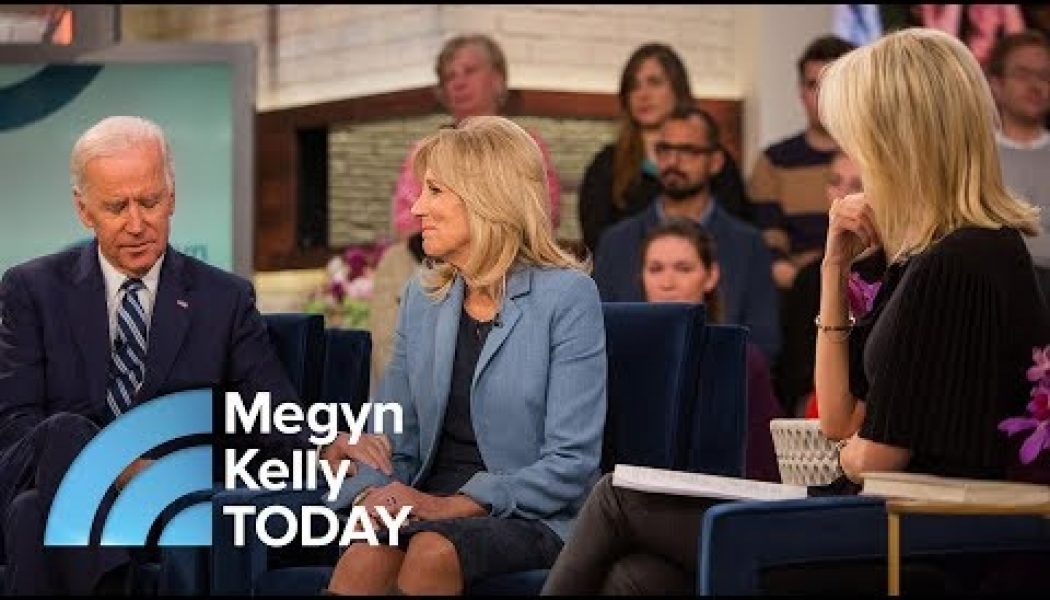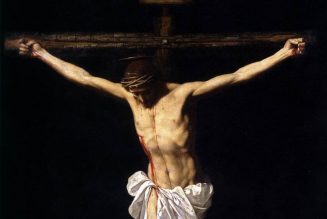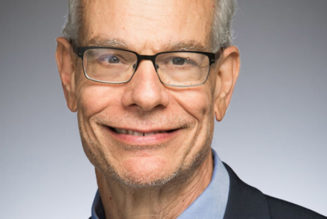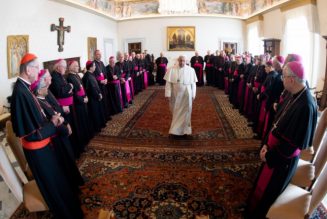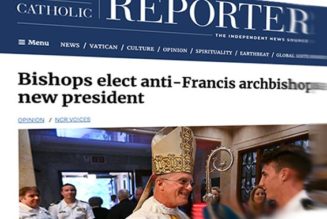Any serious discussion of Catholicism and national politics has to include material from the 1960 speech by Democratic candidate John F. Kennedy to the Greater Houston Ministerial Association.
This would certainly be true — #DUH — of discussions of the life and times of President-elect Joe Biden. I would say the same thing about citing the “personally opposed, BUT … “ approach to doctrine seen in the 1984 speech by the late New York Gov. Mario Cuomo at the University of Notre Dame.
Right now, there are Catholics arguing about whether Biden is “a Roman Catholic.” It’s safer to say, at this point, that he is an American Catholic or even a Cuomo at Notre Dame Catholic.
This brings us to the must-read Washington Post story that ran the other day with this headline: “Biden could redefine what it means to be ‘a Catholic in good standing.’ Catholics are divided on whether that is a good thing.” The key words are “in good standing” — referring to Biden continuing to be active in the sacraments of the Catholic faith, as symbolized by him going to Mass and receiving Holy Communion.
In terms of journalism, the good news is that this Post story quotes Catholic voices on both sides of this doctrinal debate. The bad news is that key passages in this report are worded — oh so precisely — in ways that will please Catholics on the doctrinal left and infuriate those on the doctrinal right.
Hold that thought. First, what did Kennedy say in 1960? Here is a crucial summary passage, with JFK stressing that his personal Catholic beliefs would never force his hand when making political decisions.
… (These) are my views. For contrary to common newspaper usage, I am not the Catholic candidate for president. I am the Democratic Party’s candidate for president, who happens also to be a Catholic. I do not speak for my church on public matters, and the church does not speak for me.
Whatever issue may come before me as president — on birth control, divorce, censorship, gambling or any other subject — I will make my decision in accordance with these views, in accordance with what my conscience tells me to be the national interest, and without regard to outside religious pressures or dictates. And no power or threat of punishment could cause me to decide otherwise.
Later, a witty critic noted (my online searches haven’t yielded the name) that anyone who knew anything about JFK’s private life would have to say this was the rare example of a presidential candidate making a campaign promise that it was absolutely certain that he would keep.
Kennedy makes his first appearance at the end of the Post article’s overture:
Bishops have already created a working group to deal with the “difficult” situation of his presidency. Priests from Maryland to Fort Worth have preached that the president-elect isn’t even really a Catholic. But to many millions of Catholics who voted for him, Joe Biden and his focus on healing are a compassionate, Pope Francis-like model of their faith.
Catholics’ views on Biden seem to serve as a proxy for what kinds of Catholicism they think most urgently needs to be advanced. Should it be more focused on qualities like engagement and empathy or on purifying doctrine? Is it as interested in Catholic teachings on poverty, refugees and the environment as those on sexuality and reproduction, or should it continue to place abortion law above all?
Despite these divisions, Biden is poised to make his mark on American Catholicism. For the next four years, the country will see its president go to Mass every Sunday, take out a rosary at times of contemplation, and quote his favorite childhood nuns and Catholic poets. And it will watch him try to navigate polarizing issues of special interest to his church that John F. Kennedy never had to take a position on — abortion, LGBTQ rights and climate change among them.
What are the “fighting words” in that passage?
Well for starters, consider: “But to many millions of Catholics who voted for him, Joe Biden and his focus on healing are a compassionate, Pope Francis-like model of their faith.” Conservative Catholics are, of course, opposed to “healing” and “compassion.” Are the Little Sisters of the Poor opposed to “healing” and “compassion”?
Then again, there’s this about the practice of Catholicism: “Should it be more focused on qualities like engagement and empathy or on purifying doctrine?” Why not say “defending” doctrine, when discussing the actions and statements of a politician who has chosen to remain a Catholic — after performing a same-sex marriage ceremony and erasing whatever centrist stances he has previously taken on right-to-life issues?
Continuing on: “Is it as interested in Catholic teachings on poverty, refugees and the environment as those on sexuality and reproduction, or should it continue to place abortion law above all?” At the very least, any discussion of that point would have to cover the views of the most recent three popes (yes, including Pope Francis) on the ways in which the church’s defense of the unborn are rooted in the same sanctity-of-life teachings that define its teachings on poverty, immigration, labor, etc. It might even help to consult the Catechism of the Catholic Church on why abortion is such a crucial doctrinal issue.
I could offer dozens of other examples in the article. Here’s another key point: the Post frames all of this as a clash between the life and actions of President Donald Trump and the beliefs of those who consistently back Biden and his supporters in the church. There are many Catholics who have been appalled by Trump’s style and many of his actions who oppose Biden’s recent embrace of Democratic Party orthodoxy on moral and social issues.
Consider this crucial sentence: “Trump drew praise from conservative religious leaders in particular for his emphasis on protecting their religious liberties and exemptions.”
If you have followed FIrst Amendment debates in recent years, you know that the “conservatives” have consistently been defending the old-liberal views seen in the Religious Freedom Restoration Act passed with overwhelming bipartisan support during the Bill Clinton era. Note that Biden was one of the Democrats who introduced and supported that legislation, which has been used by lawyers on the left and the right to defend the First Amendment rights of believers in a wide variety of faith traditions.
<div class="sqs-block video-block sqs-block-video" data-block-json="{"blockAnimation":"none","layout":"caption-hidden","overlay":true,"description":{"html":"Fr. Ed Meeks Homily – 10-11-20"},"hSize":null,"floatDir":null,"html":"\n","url":"https://www.youtube.com/watch?v=Pi1pHExl6Ug&feature=youtu.be","width":854,"height":480,"providerName":"YouTube","thumbnailUrl":"https://i.ytimg.com/vi/Pi1pHExl6Ug/hqdefault.jpg","resolvedBy":"youtube"}” data-block-type=”32″ id=”block-yui_3_17_2_1_1607960187402_35470″>
As I said earlier: This article does quote Catholics on both sides. However, the story uses language that frames these debates in ways that weaken or even twist the views of Catholics on the doctrinally conservative side of the debate.
I will end with this one:
Kennedy enjoyed rock star-like support among Catholics, winning 80 percent of their vote; Biden won Catholics by a narrow majority. While in the decades after 1960, Catholics of all political persuasions kept a photo of Kennedy on the wall, next to one of the pope, in 2020 nearly 2.4 million people have watched the Rev. Ed Meeks preach on YouTube an anti-Biden sermon called “Staring Into the Abyss.” Meeks, of Christ the King parish in Towson, is among at least a dozen U.S. priests who made news this fall with sermons challenging Biden’s Catholicism and saying his support of pandemic lockdowns and same-sex marriage are threatening to the American way of life.
But Catholic clergy, like U.S. Catholics, have varying views on Biden. Division among the U.S. bishops over how to react to Biden’s election apparently led to two shifting statements by U.S. Conference of Catholic Bishops President José Gomez of Los Angeles.
Wait, wait, wait.
Seriously, did all of those priests — and by implication, their conservative bishops — really equate opposing “pandemic lockdowns” with making efforts to defend church teachings on marriage? And they all worded this in terms of threats on the “American way of life,” as opposed to the defense of church doctrine?
I seriously doubt that this is the case. Now, it is certainly true that Catholic leaders have been strong advocates of finding safe ways to return to Mass — honoring social-distancing rules — during the COVID-19 pandemic. Yes, it is also true that most have also stressed that, in light of the First Amendment’s protection of religious belief AND practice, churches should not face regulations that are stronger than those applied to similar secular institutions.
Equating debates about whether lockdowns are effective with discussions of how to safely worship in giant sanctuaries — or outdoors, in the open air — is, well, bizarre.
After all, the last time I checked, Biden has been going to Mass — in a mask — in churches in which the clergy are holding worship services for as many worshippers as possible under social-distancing protocols.
There are a few priests who oppose lockdowns, period. Is it accurate or fair to equating that small circle of priests with the number of Catholic clergy and bishops who will defend church teachings on sexuality and marriage?
Trust me: I am aware that it is hard to write articles on issues this complex in a news report, even a fairly lengthy one such as this Post piece. I know that it is almost impossible to please — in discussions of accuracy, even — the gatekeepers and stakeholders on both sides.
At the very least, journalists must be willing to use words, when framing issues during a news report, that make people on both sides uncomfortable at some point.
FIRST IMAGE: Joe Biden and his rosary, a screenshot from an image on Twitter.
